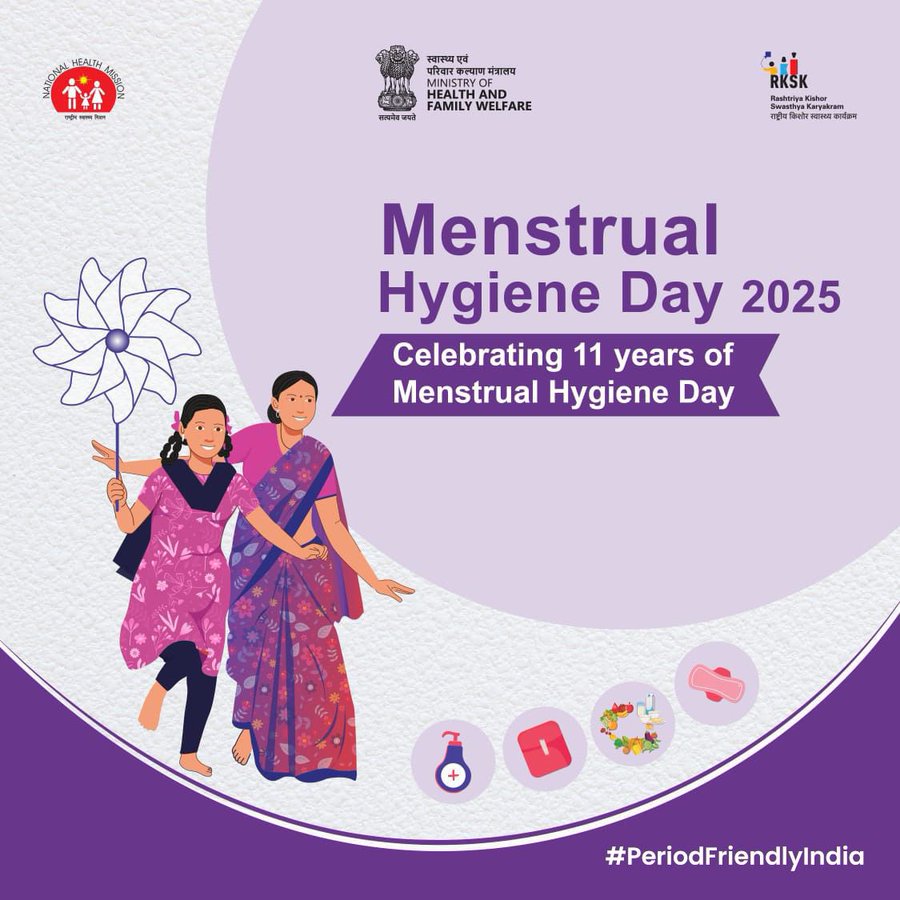Eleven years after its inception, Menstrual Hygiene Day has evolved from a grassroots awareness campaign into a national reckoning on gender, public health, and social equity. Observed annually on May 28, this global initiative is drawing renewed attention in India as policymakers, educators, and grassroots leaders converge to address one of the country’s most persistent and overlooked challenges: menstrual health.
From urban classrooms to rural villages, this year’s Menstrual Hygiene Day campaign — themed #PeriodFriendlyIndia — seeks to dismantle decades of stigma surrounding menstruation, while pushing for systemic reform in education, sanitation, and access to hygiene products. The message is clear: no girl should be denied dignity or opportunity simply because of her period.
Closing the Gap Between Awareness and Access
In India, where cultural taboos have long rendered menstruation a subject of silence and shame, the Menstrual Hygiene Day movement has been a catalyst for change. Yet, for all the progress made, stark inequalities remain. According to the National Family Health Survey (NFHS-5), nearly one in four adolescent girls in rural areas still lacks access to sanitary protection.
“Menstrual health is not a ‘women’s issue’ — it is a public issue,” said Dr. Aruna Joshi, a public health specialist based in Pune. “When girls drop out of school, skip work, or suffer in silence due to lack of access or shame, we all lose.”
Efforts by central and state governments have made headway, including initiatives under the Menstrual Hygiene Scheme, Swachh Bharat Mission, and Beti Bachao Beti Padhao. Yet activists argue that distribution of sanitary products is not enough. Comprehensive menstrual education, inclusive policies, and disposal infrastructure are critical to making these efforts sustainable.
From Awareness to Accountability
This year, the observance has moved beyond symbolic gestures. Hundreds of schools across India conducted menstrual awareness sessions this week, while health workers distributed biodegradable hygiene kits in tribal and remote areas. At the policy level, several states are piloting programs to incorporate menstrual education into formal school curricula — a step long advocated by gender rights groups.
“We are now at a point where we can talk about periods in classrooms,” said Meera Bhaskar, a schoolteacher in Madhya Pradesh. “But until our girls can manage them with confidence and support, our work is incomplete.”
Social media campaigns using hashtags like #ItsTimeForAction and #PeriodFriendlyIndia have gained momentum, amplifying voices of students, medical professionals, and influencers who are demanding that menstruation be treated as a human rights issue, not a private burden.
A Future Without Menstrual Shame
As India marks more than a decade of commemorating Menstrual Hygiene Day, a new generation of leaders is emerging — one that insists on not just removing the stigma but building infrastructure and policy that reflect a deep commitment to equity.
From startups developing low-cost sanitary products to civic bodies piloting safe waste disposal units, the movement is increasingly intersectional and solutions-driven.
Still, campaigners warn that without consistent political will and increased investment, momentum could stall. “We cannot normalize menstruation unless it is normalized in policy, budget, and behavior,” said Anjali Verma, founder of a menstrual equity nonprofit.
With over 355 million menstruating women and girls in India, the stakes are high. Menstrual Hygiene Day 2025 is more than a symbolic milestone — it is a litmus test for how seriously the country takes the health, dignity, and future of half its population.


